
Widespread showers and thunderstorms, some severe, may produce heavy downpours and flash flooding across much of the eastern and central U.S. Dangerous heat will continue in the Pacific Northwest and expand across portions of the East. Deep tropical moisture and associated thunderstorms will bring heavy rainfall and localized flash flooding across portions of Florida into the central Gulf Coast. Read More >
Overview
A mesoscale convective system (MCS) tracked south-southeastward across Lake Michigan during the early morning hours of July 29th. Its associated MCV moved to a position to just north of Fort Wayne, Indiana by ~7 AM on the 29th (as the MCS was weakening). WNW flow aloft allowed that MCV to move rather quickly to the east-southeast during the day on the 29th, entering far northwest VA by the middle of the afternoon. During the day, the convection immediately adjacent to the MCV remained sub-severe. By 4:30 PM, a lone thunderstorm near the center of the MCV began rapidly strengthening just to the north of Fredericksburg, Virginia. The storm quickly became a right moving supercell as it tracked from just north of Fredericksburg to near Williamsburg from 4:30 to just after 8 PM before weakening. The environment was characterized by moderate instability but anomalously strong deep layer shear (due to 40-45 knot west-northwesterlies at 500 mb). Extensive straight line wind damage (estimated wind speeds were 70-80 mph) was observed along its track. In addition, hail up to the size of half dollars was observed in the Wakefield forecast area along the track.
Photos
Storm Damage Photos
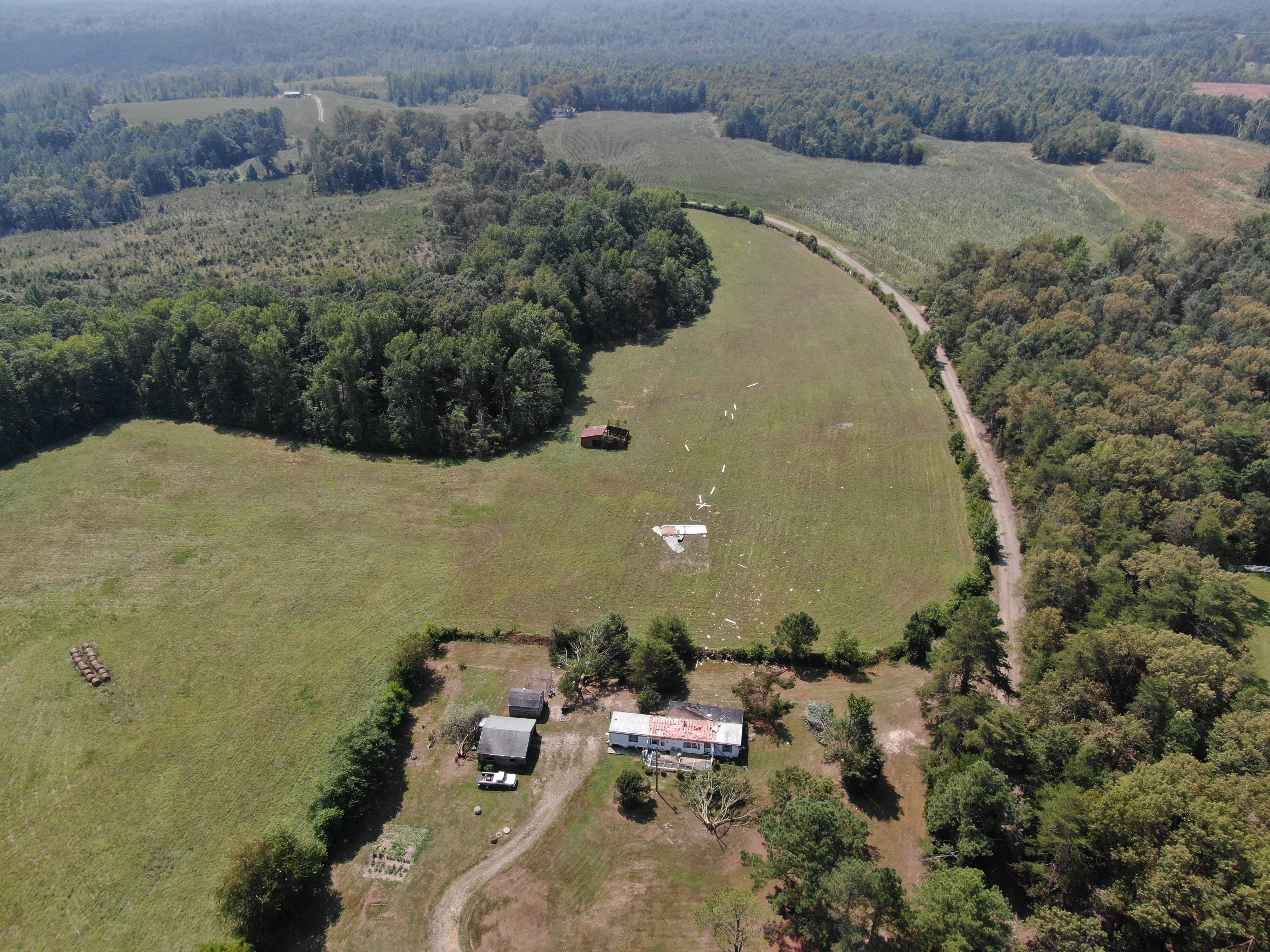 |
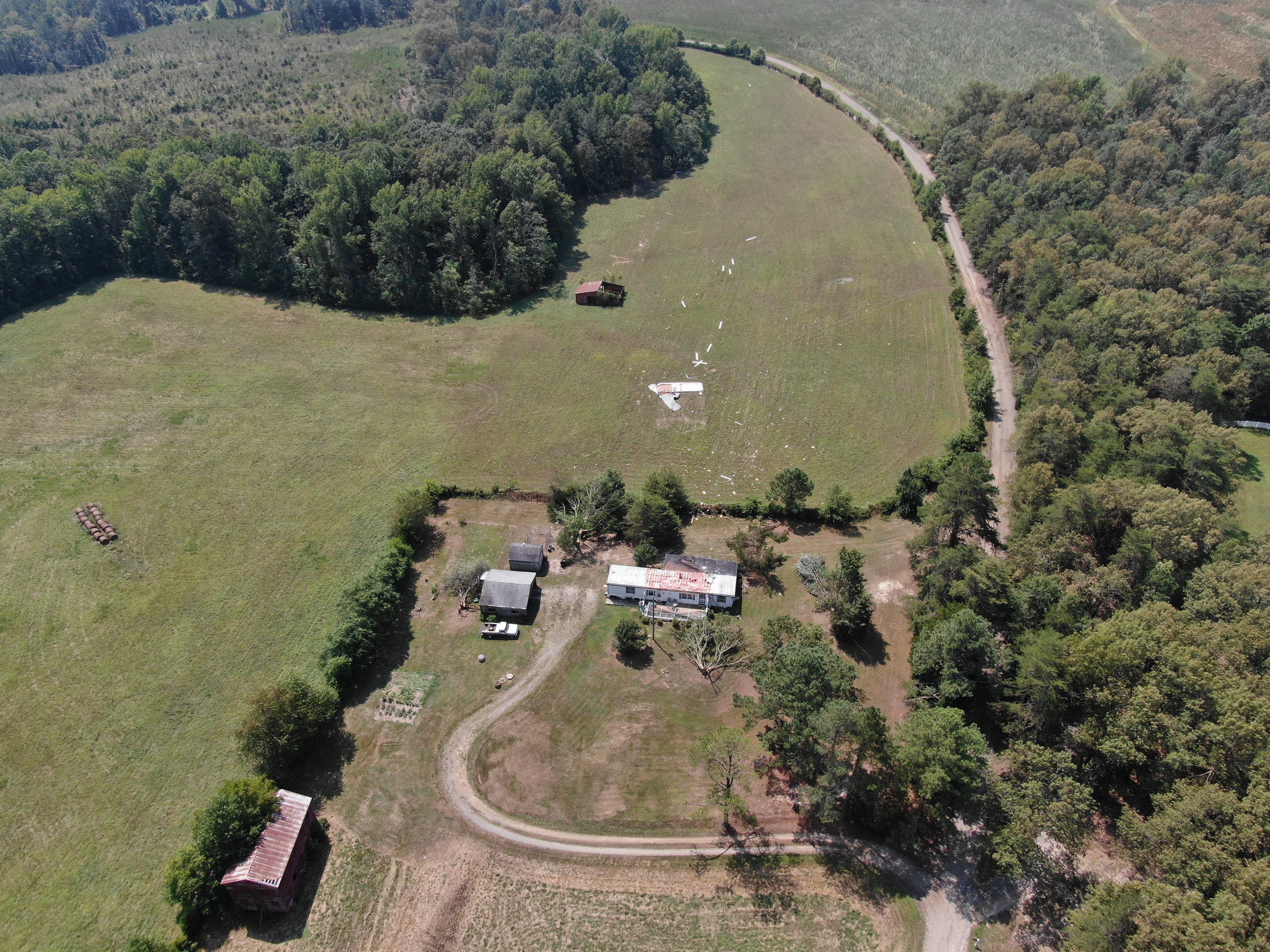 |
||
| Drone footage of damage in Caroline County (source: Caroline County Sheriff's Office) | Slightly difference view of drone footage of damage in Caroline County (source: Caroline County Sheriff's Office) | Caption (source) |
Caption (source) |
Radar
Selected Loops/Images
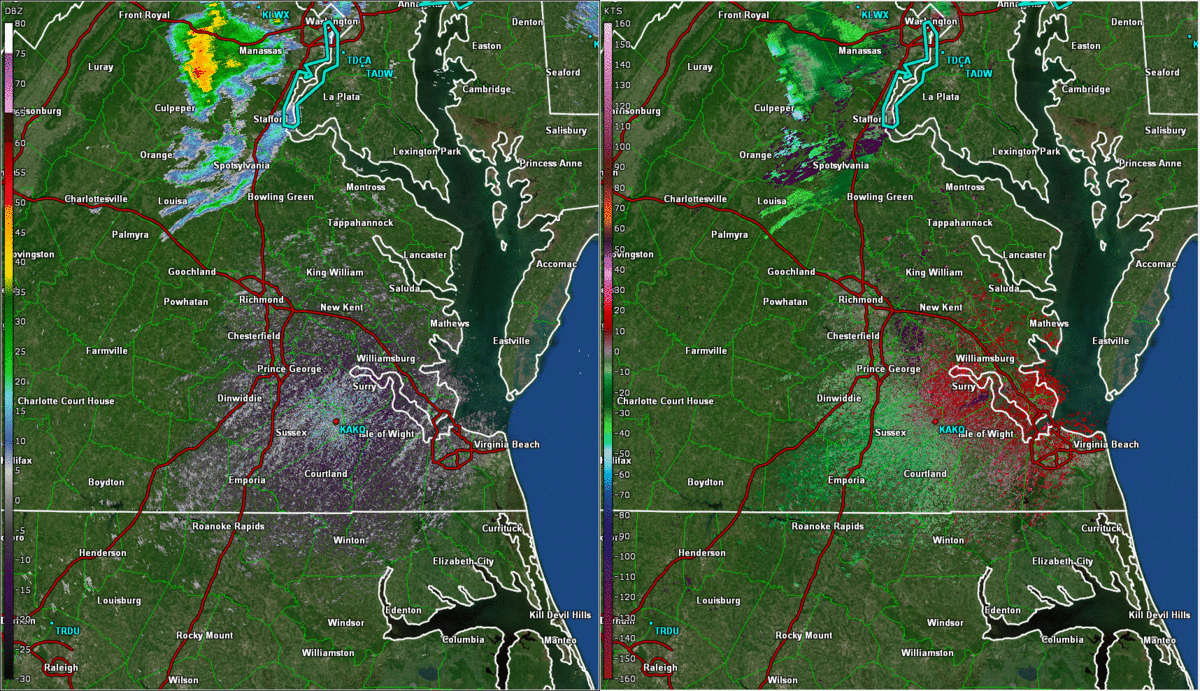 |
 |
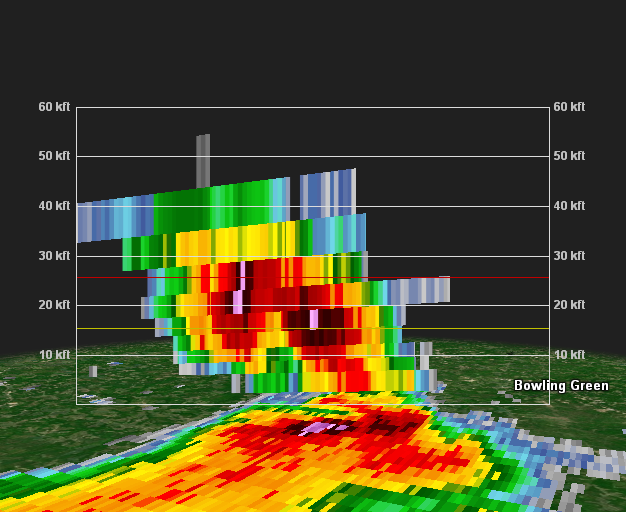 |
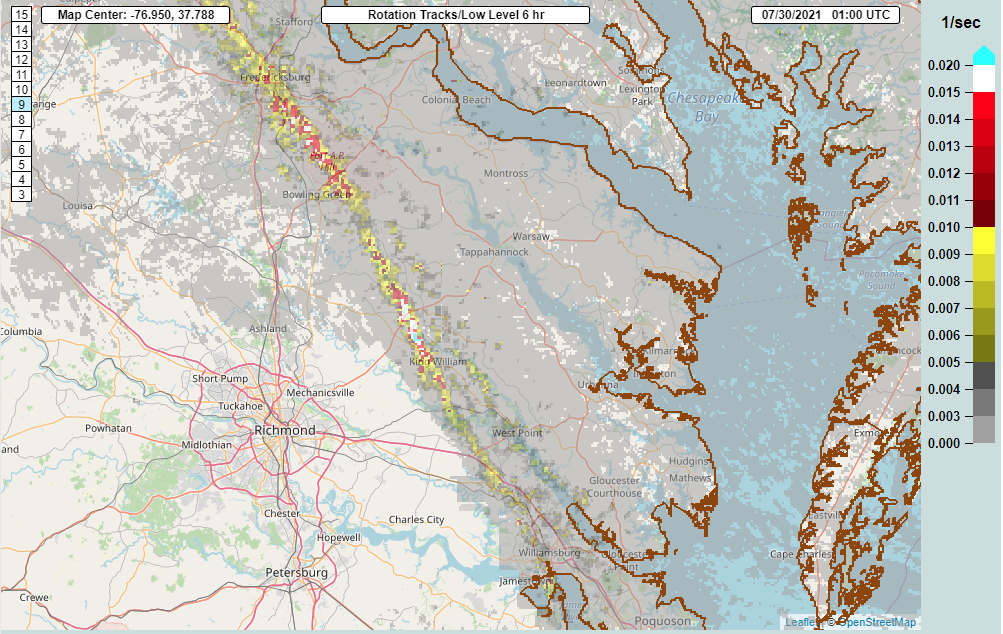 |
| Radar Loop from ~4:30 to 8:10 PM in approximately 10 minute increments. On the left is 0.5° Reflectivity and on the right is 0.5° Base Velocity | 6:26 PM Radar image of the supercell when it was over Caroline County. On the left is 0.5° Reflectivity and on the right is 0.5° Base Velocity | 6:26 PM Vertical Slice of Reflectivity. A bounded weak echo region (BWER) is clearly evident. In addition, there is a 65-70 dbz core to nearly 30,000 feet AGL. | MRMS Low Level Rotation tracks from 3 PM to 9 PM. |
Storm Reports
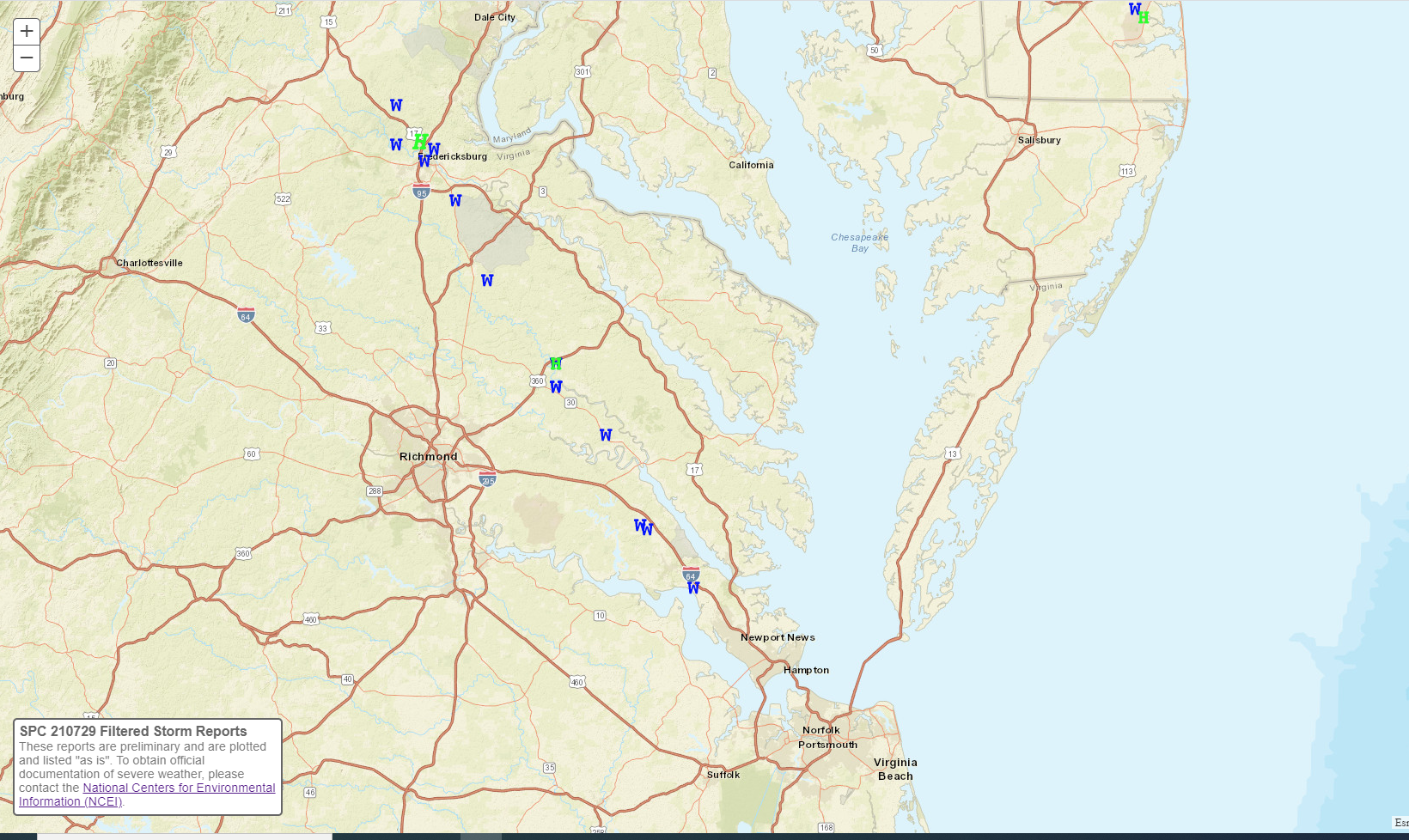
Environment
Synoptic summary.
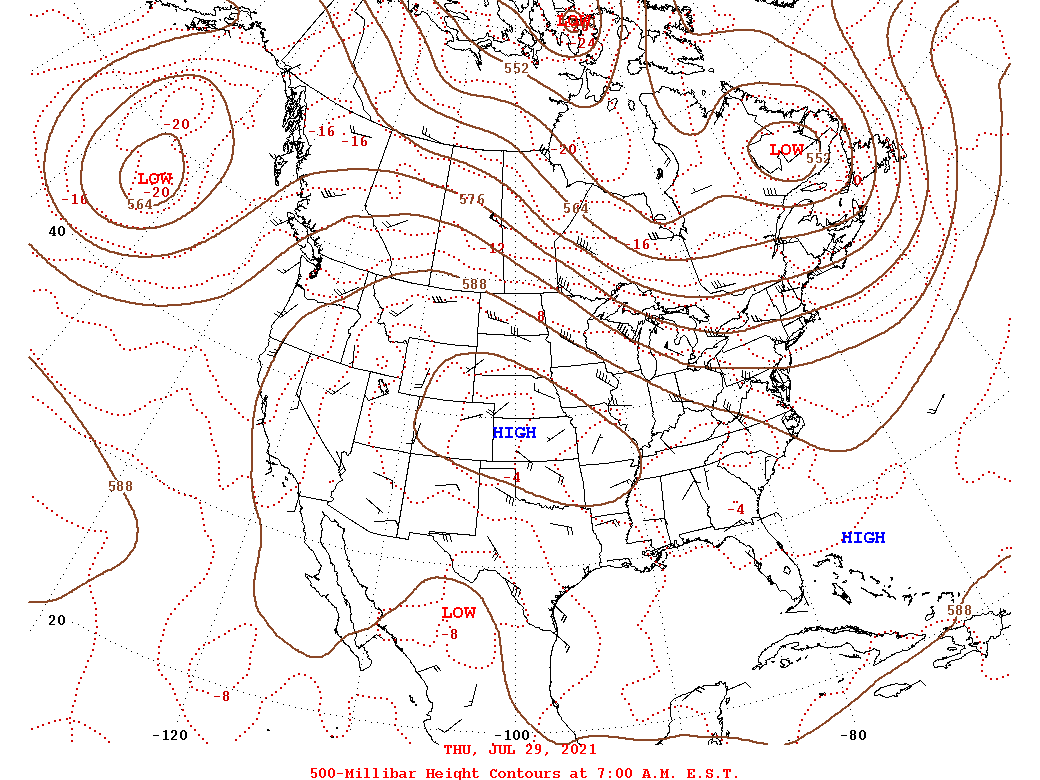 |
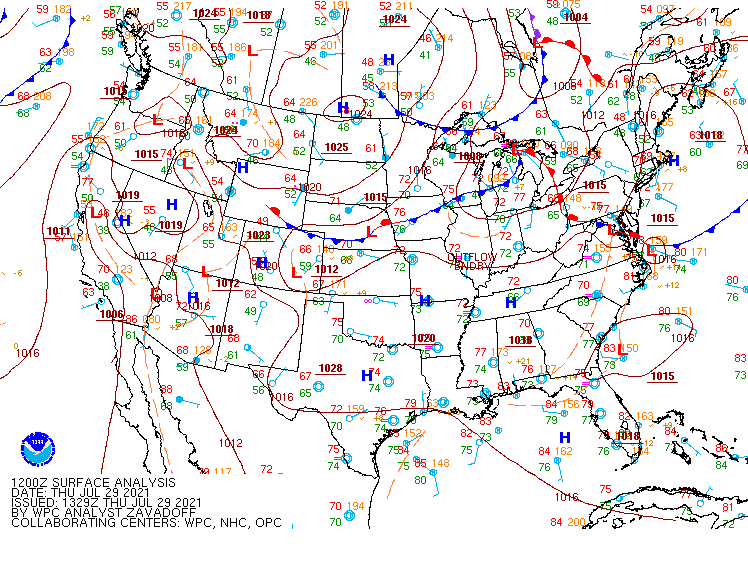 |
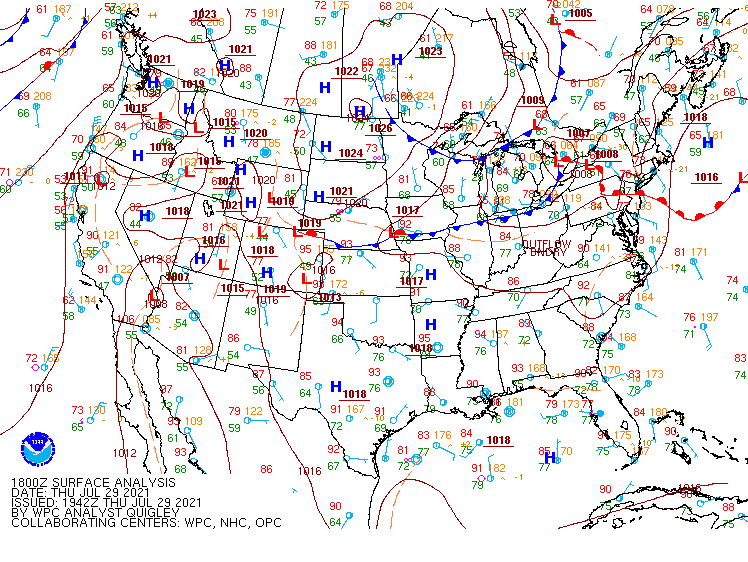 |
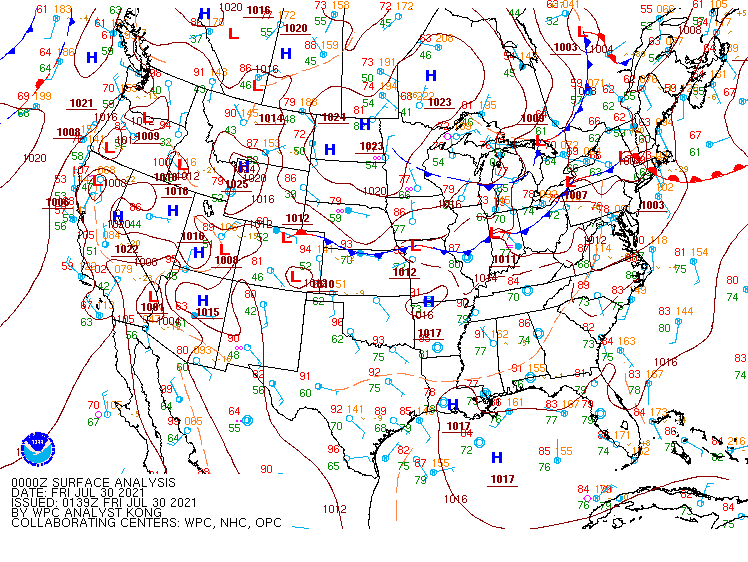 |
| 12z/8 AM EDT 7/29 500 mb Analysis | 12z/8 AM EDT 7/29 WPC Surface Analysis | 18z/2 PM EDT WPC Surface Analysis | 00z/8 PM EDT WPC Surface Analysis |
Near-storm observations.
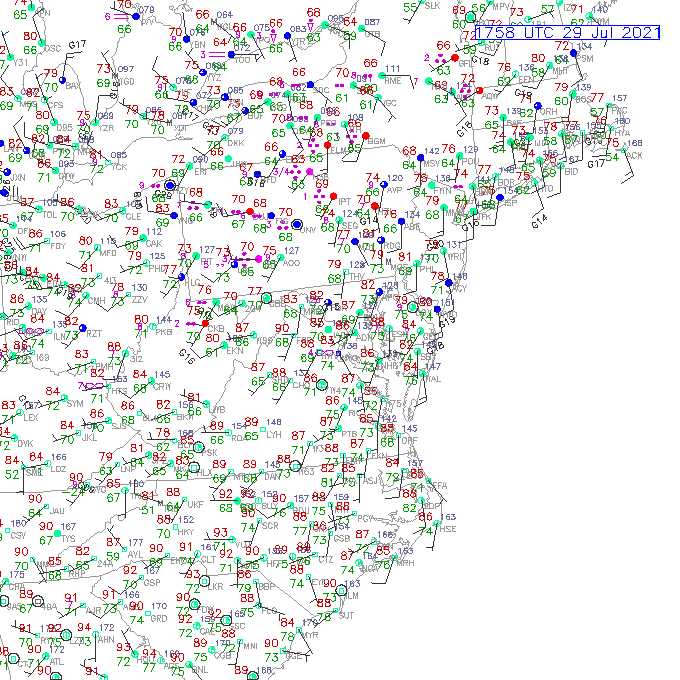 |
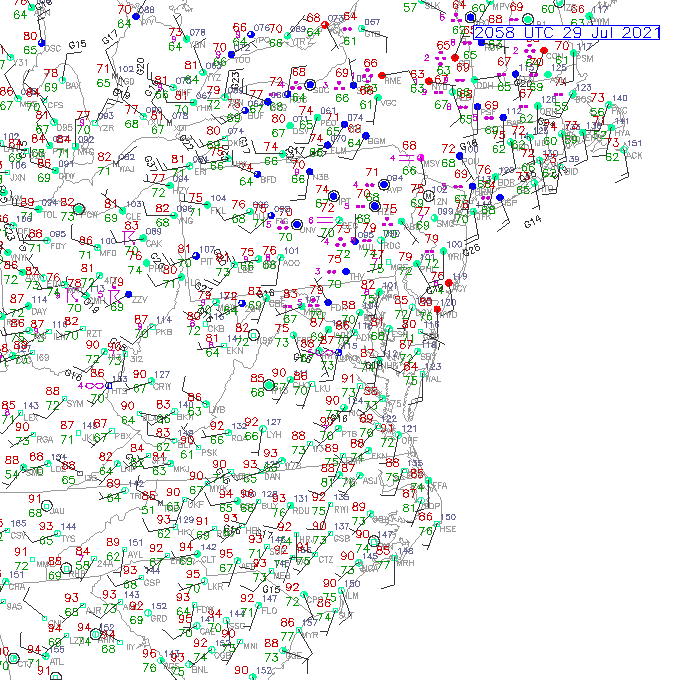 |
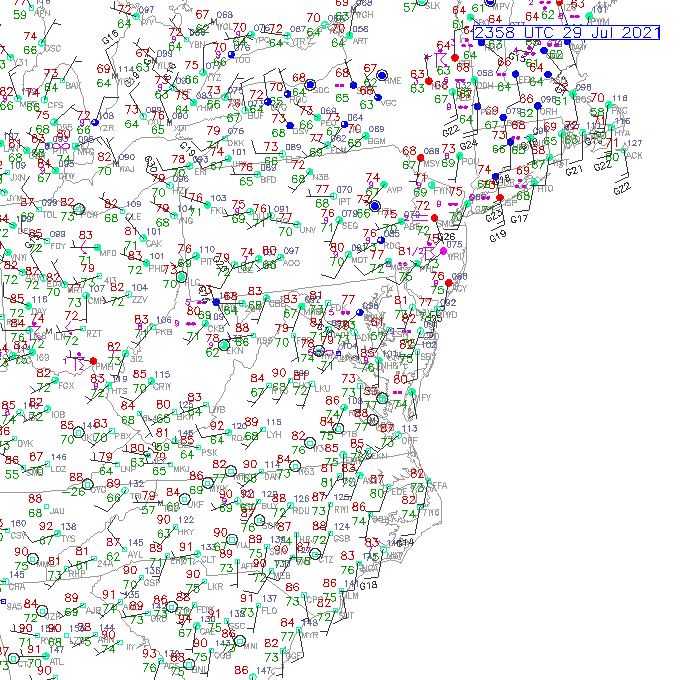 |
| 18z/2 PM Observations | 21z/5 PM Observations | 00z/8 PM Observations |
00z 7/30 (8 PM EDT 7/29) sounding data.
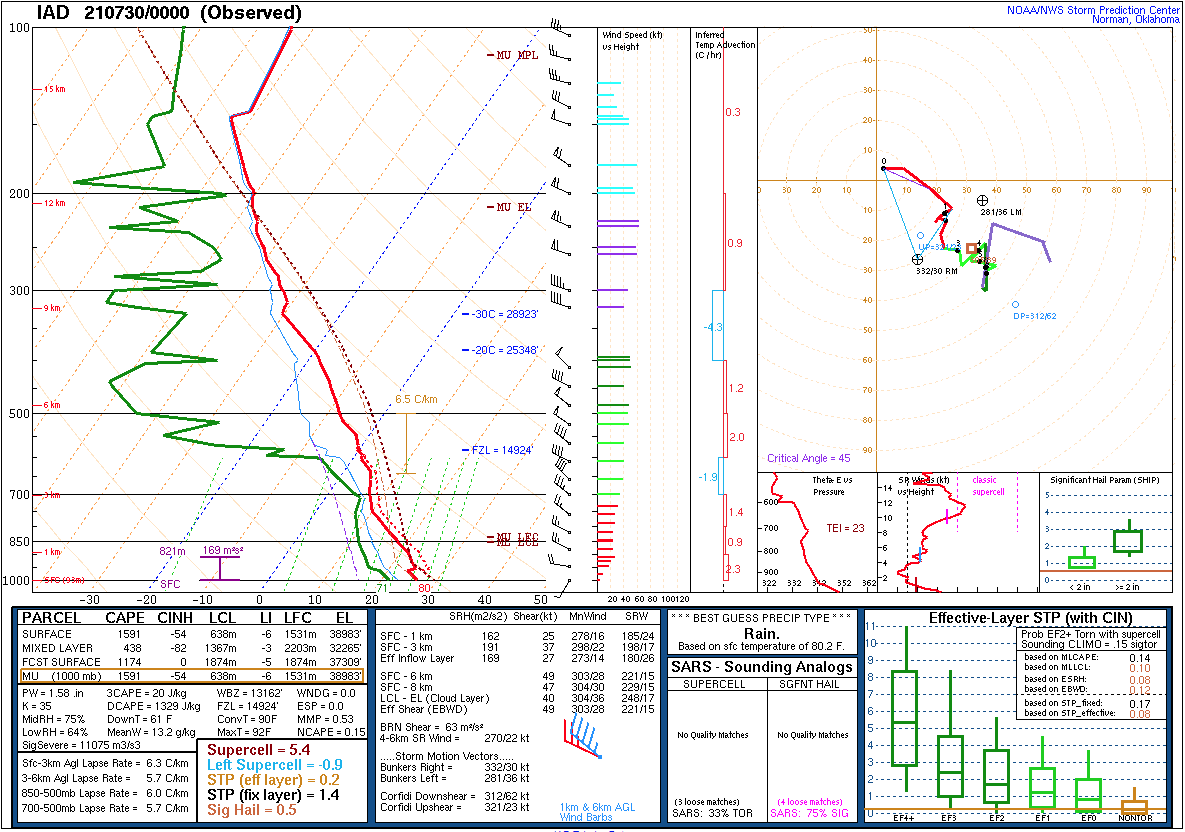 |
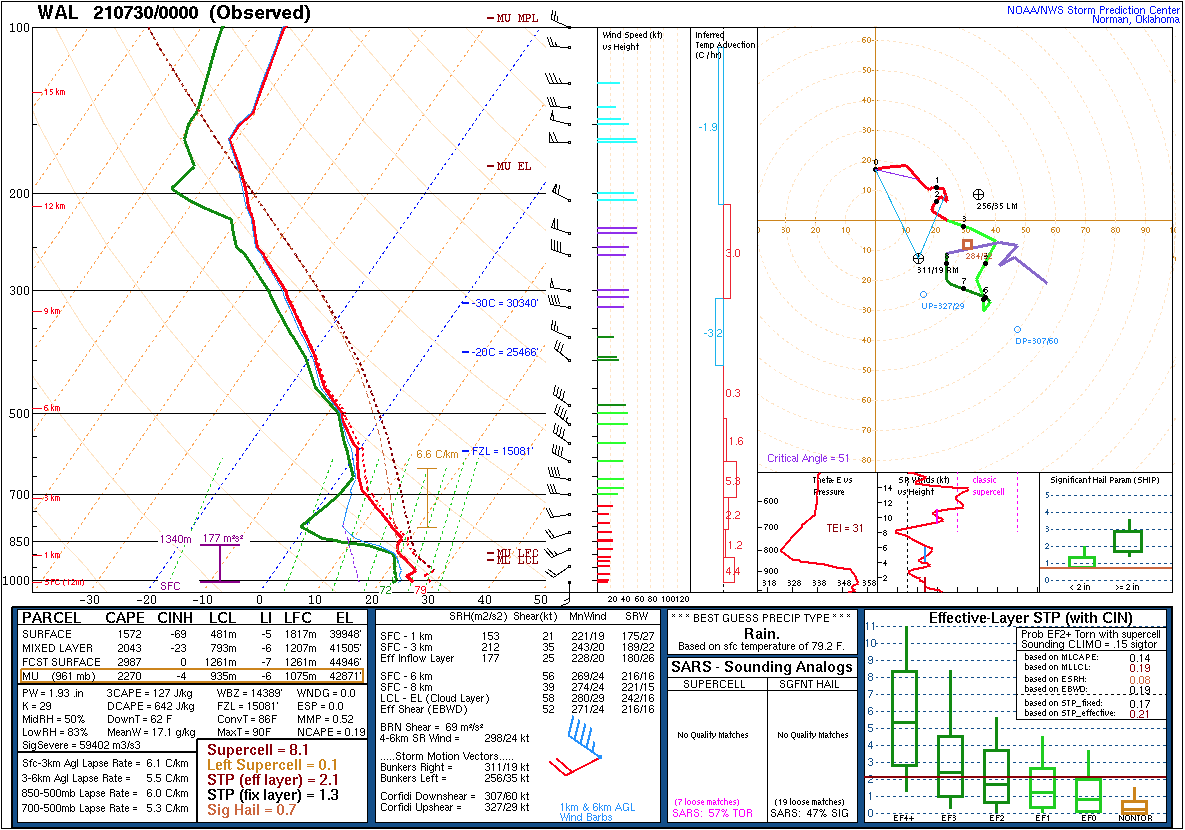 |
| Sounding from Washington Dulles (KIAD) | Sounding from Wallops Island (KWAL) |
 |
Media use of NWS Web News Stories is encouraged! Please acknowledge the NWS as the source of any news information accessed from this site. |
 |